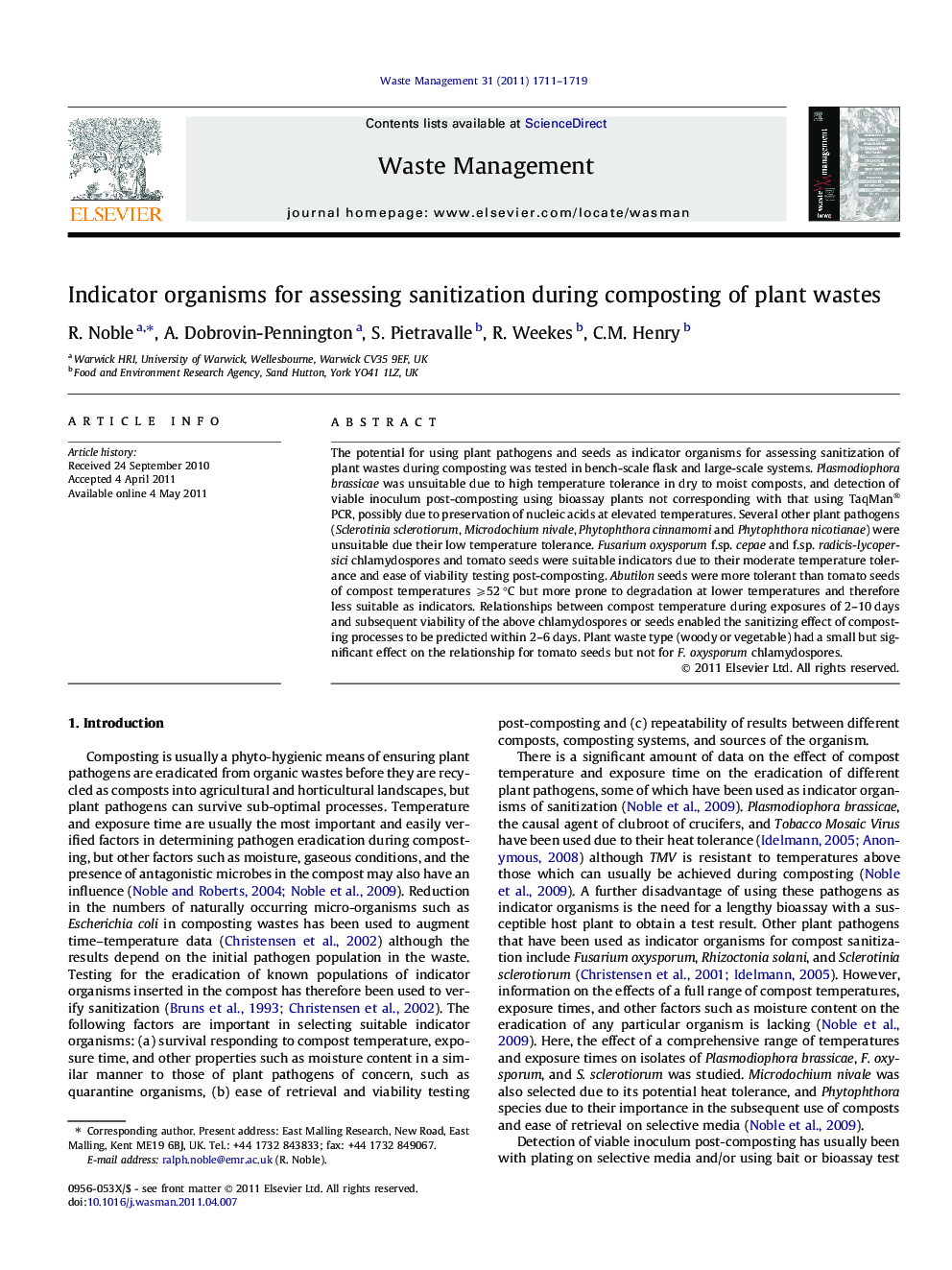| کد مقاله | کد نشریه | سال انتشار | مقاله انگلیسی | نسخه تمام متن |
|---|---|---|---|---|
| 4471888 | 1315048 | 2011 | 9 صفحه PDF | دانلود رایگان |

The potential for using plant pathogens and seeds as indicator organisms for assessing sanitization of plant wastes during composting was tested in bench-scale flask and large-scale systems. Plasmodiophora brassicae was unsuitable due to high temperature tolerance in dry to moist composts, and detection of viable inoculum post-composting using bioassay plants not corresponding with that using TaqMan® PCR, possibly due to preservation of nucleic acids at elevated temperatures. Several other plant pathogens (Sclerotinia sclerotiorum, Microdochium nivale, Phytophthora cinnamomi and Phytophthora nicotianae) were unsuitable due their low temperature tolerance. Fusarium oxysporum f.sp. cepae and f.sp. radicis-lycopersici chlamydospores and tomato seeds were suitable indicators due to their moderate temperature tolerance and ease of viability testing post-composting. Abutilon seeds were more tolerant than tomato seeds of compost temperatures ⩾52 °C but more prone to degradation at lower temperatures and therefore less suitable as indicators. Relationships between compost temperature during exposures of 2–10 days and subsequent viability of the above chlamydospores or seeds enabled the sanitizing effect of composting processes to be predicted within 2–6 days. Plant waste type (woody or vegetable) had a small but significant effect on the relationship for tomato seeds but not for F. oxysporum chlamydospores.
► High populations of several plant pathogens survived sub-optimal composting processes.
► Viability loss of Fusarium oxysporum chlamydospores and tomato seeds indicated sanitization.
► Compost temperature, exposure time, and waste type influenced viability loss.
► Plasmodiophora brassicae was an unsuitable indicator of compost sanitization.
Journal: Waste Management - Volume 31, Issue 8, August 2011, Pages 1711–1719